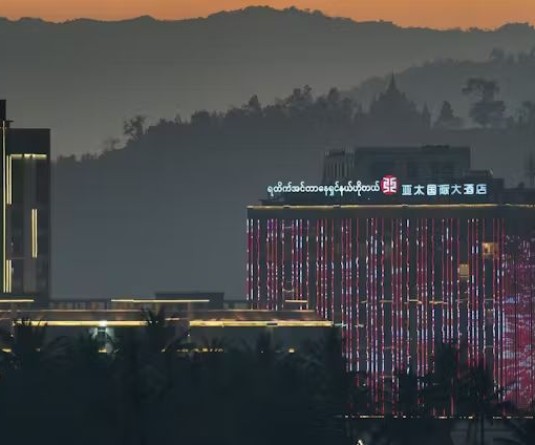
Sani K.
I am a ‘worker’ but Ironically, I have no rights and liberties like other ‘workers’. In my home I am the first to get up and the last to go to bed. I bear no grudges because I have no time to do so; the little time I have is only to work, work and work. I am your domestic worker. I am a child laborer.
Less than a fortnight past, the night air was vibrant. Children and adults alike dressed in their best festive clothes made their presence felt in Dimapur. The season was festive, it was “Durga Puja” - a Christmas likened season for the Hindus. But for the dark skinned young boy of 10, neither the season, nor new fancy clothes had any significance. He had to attend to his master’s commands and whims. “I wanted to go out with my friends, but my “Saab” did not allow me”. The boy with “paan” for his master looked right through me as he bluntly told me so. Living a life controlled by their employers’, this section of the population silently bears the brunt of their poverty.
Hidden from the scrutiny of the public eye, the vast population of domestic helps’ lives a life of uncertainty. Most of them are given no opportunity to attend school, or are forced out of school when the demand of work heightens. Live objects subjected to verbal and physical abuse, multitudes of them have either been chased out of homes or forced to run away from homes. Many of them land up in another home, or hotels, restaurants, garages, etc while many land up on the streets. Uneducated and ill-equipped with the ways of the world, a majority of these discarded souls unwittingly learn unlawful and anti-social trades for their survival. Their very survival and presence now becomes an eye sore in the eye of a society that, till then, had either shut their eyes or remained mute spectators to perpetrations that finally gave shape to so called anti-social elements.
Indian Labor Laws prohibit employment of children in occupations/works deemed hazardous which are enlisted in black and white under the Child Labor (Prohibition and Abolition) Act, 1986. The list would now, starting 10th October, include work/occupations in domestic, hotel and restaurant set-up. As reported in a local daily (6th Oct), the Union ministry of Labor and Employment has also served directives to the Department of Labour, Government of Nagaland, to implement the prohibition of employing children below 14 years of age in domestic, hotel and restaurant work. Reportedly, the said direction, in the form of a notification in the Gazette of India dated 10th July 06, has also served as a notice to the general public to take necessary steps in this direction.
At face value, this development is a heartening welcome for the multitudes of child laborers suffering injustice in silence. But I, for one, am pessimistic about reality living up to the expectation. Why? Let me give my reasons, rather, unanswered queries, for my reservation. Are the children to be simply taken off from their occupation, without regard for their ‘thereafter’? If not, what arrangement has the government devised for the multitudes that would be ‘jobless’? What would be done, and who will earn, for those parents, brothers and sisters, solely dependent on the little earning of their “little ones”? How many schools and institutions would admit these children? Do we have enough resources to care and provide for these ‘out of job’ children? Is the government mechanism sound enough to provide justifiable avenue for all of the children? And are we ready to take up the work we almost absentmindedly delegate to these children?
Most of us have heard of ‘universal schooling for children below the age of 14’. But can we boast that what we have heard is also visible? The point I want to make clear is, we cannot deny that the ‘work’ the children do, howsoever unjustified if we allow it, are oftentimes the sole means of survival for many a family. And more startling is that the works of these children are indispensable, even to the extent of development of the society. Child labor is a reality we live with, and this is a reality we cannot simply deny it or wish it away. What we need to really strive for is, to collectively advocate for regulatory working hours for these children, provisions for rewards, holidays (or day offs), and foremost, provide for their schooling and a sound future. Let us then strive to give visibility and fundamental human rights, to our small invisible workers.






